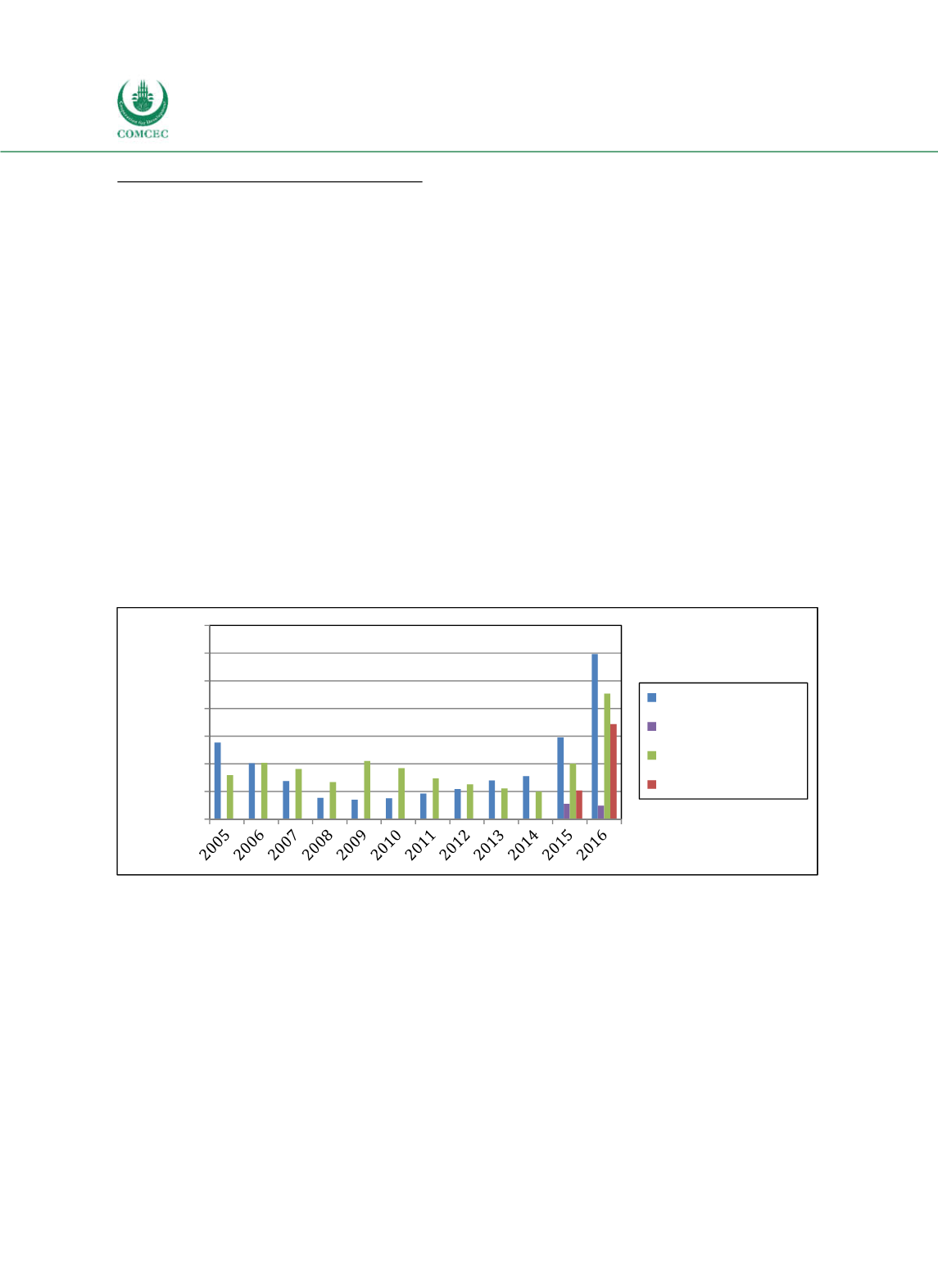

Improving Public Debt Management
In the OIC Member Countries
164
Borrowing and related financial activities
Operations (incl. Islamic finance)
Oman uses Government Development bonds (GDB),
sukuk
, loans and TBills in public debt
management. The amount of outstanding GDBs steadily declined until 2011, but has increased
again significantly in the last years (see Figure 440).
In October 2015, Oman issued sovereign
sukuk
for the first time, totaling $649.3 million and
having a maturity of five years (Economist 2015). The strong investors’ demand for Oman’s
sukuk
encouraged the government to return to the debt market in the coming periods. In June
2016, Oman issued
sukuk
again, totaling $500 million with a profit rate of 3.5% per annum.
The
sukuk
are based on an alIjara structure and have a maturity of six years (Moody’s 2016).
Issuing
sukuk
supports developing Oman's Islamic finance market and opens a new channel to
raise money for the government. Plans to issue
sukuk
denominated in U.S. dollar again in the
near future exist.
In March 2015 the CBO issued TBills i.e. shortterm highly secured financial instruments, with
maturities of 91 days and less frequently 364 days to domestic banks for the first time after
several years of nonissuing TBills. The outstanding amount of TBills was RO 64.2 million
($166.7 million) at the end of 2015. In June 2016, domestic banks invested RO 420.5 million
($1092.6 million) in TBills (Central Bank 2016).
Figure 4-40: Oman - Outstanding Public Debt by Instruments
Source: Central Bank of Oman (2011, 2016), Economist Intelligence Unit (2015), Moody’s (2016), Wall Street
Journal (2016), calculations by the Ifo Institute.
Domestic debt market
The share of domestic debt in total debt was about 40% over the period 20052016. Banks
hold the largest share of GDBs (55.1%), followed by pension funds (36%) other financial
institutions (8.5%). Individuals only hold about 0.2% of GDBs. In order to augment liquidity in
the banking sector and encourage investments, Oman decided in April 2016 to permit banks’
investments in TBills, GDBs and Oman sovereign
sukuk
to be part of eligible reserves up to a
maximum of two percent of deposits (Central Bank 2016). The scope for further domestic
borrowing is limited, because the liquidity of the local market is relatively shallow.
0% 2% 4% 6% 8% 10% 12% 14%
Share of GDP
Development bonds
Sukuk Loans Treasury Bills
















